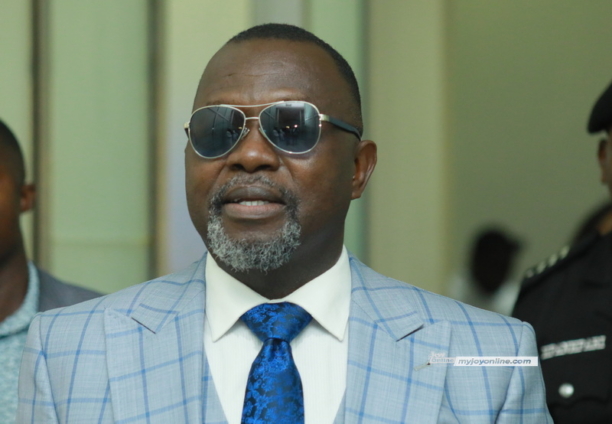
Audio By Carbonatix
The Attorney-General and Minister of Justice, Dr Dominic Ayine, has defended his decision to withdraw some high-profile criminal cases and enter nolle prosequi in others, stating that his actions are guided by constitutional principles, legal ethics, and professional integrity.
Speaking at a press briefing on Wednesday, February 12, Dr Ayine explained that his commitment to transparency in these decisions is not only to dispel accusations of partiality or political influence but also to uphold the constitutional requirements outlined in Article 296 of the 1992 Constitution.
"My decision to be open and transparent about the factors animating the entry of nolle prosequi in some cases, and the withdrawal of others is not only because I want to avoid accusations of partiality and or calculation to political pressure, but also to comply with the constitutional requirements stated in Article 296 of the Constitution," he stated.
Dr Ayine clarified the distinction between the legal mechanisms of nolle prosequi and charge withdrawals, explaining that while the former allows for future prosecution on the same charges, the latter, under Section 59 of the Criminal and Other Offences (Procedure) Act 1960 (Act 30), effectively acquits and discharges the accused if the prosecution had already closed its case.
"The power to enter a nolle prosequi is contained in section 54 of the Criminal and Other Offences (Procedure) Act, 1960 (Act 30). Pursuant to this provision, the Attorney General may enter a nolle prosequi at any stage of a criminal trial.
"The statute does not itself require the Attorney General to provide any reasons for his decision to abate proceedings by entering the nolle prosequi," he explained.
He further stated that his duty, as the chief legal officer of the state, is to act in the best interest of Ghana, which he serves on behalf of its sovereign people.
Outlining the rationale behind his decision to terminate certain trials, Dr Ayine cited three primary factors.
"The first was that, for ethical and professional reasons, I could not, in good conscience, continue to prosecute some of the cases," the Attorney-General said.
"The second was that for some of the cases, my own review and analysis of the charges showed clearly that the charges were defective and some were filed against the promptings of plain common sense.
"The third was that in some of the cases, the evidence led so far showed that there was a reasonable doubt as to the guilt of the accused persons, and no prosecutor should continue to pursue a case in the face of overwhelming doubt regarding the guilt of the accused person."
Latest Stories
-
KMA finally elects Presiding Member after stalemate
30 minutes -
Nana B rallies Ayawaso East voters to back NPP’s Baba Ali in March 3 by-election
31 minutes -
Be honest with Ghanaians on gold policy – Oppong Nkrumah to gov’t
32 minutes -
Lands Minister refutes claims of missing seized excavators, unveils tracking system
37 minutes -
Ghana set to launch National AI Strategy to boost local innovation – Sam George
38 minutes -
PURC gives ECG 48 hours to fix prepaid metering concerns
42 minutes -
Makola No. 2 Market managers justify rent increase amid traders’ protests
43 minutes -
Mahama to deliver 2026 State of the Nation Address today
47 minutes -
Rapid prepaid electricity depletion not caused by smart meters – Adomako-Mensah rejects ECG’s assertion
49 minutes -
GoldBod warns licence holders over failure to file monthly gold transaction reports
1 hour -
E&P controls 45% of Ghana’s mining operations, eyes greater role in economic growth
1 hour -
UEW lecturer questions scientific rigor of EPA’s Nano Copper river clean-up
1 hour -
NAPO’s guidance key to my 2012 victory – Afenyo-Markin
1 hour -
Police arrest 7 over fake traffic fine scam targeting mobile money users
1 hour -
NDPC, DTI rally stakeholders to drive 2026 human capital development agenda
2 hours

